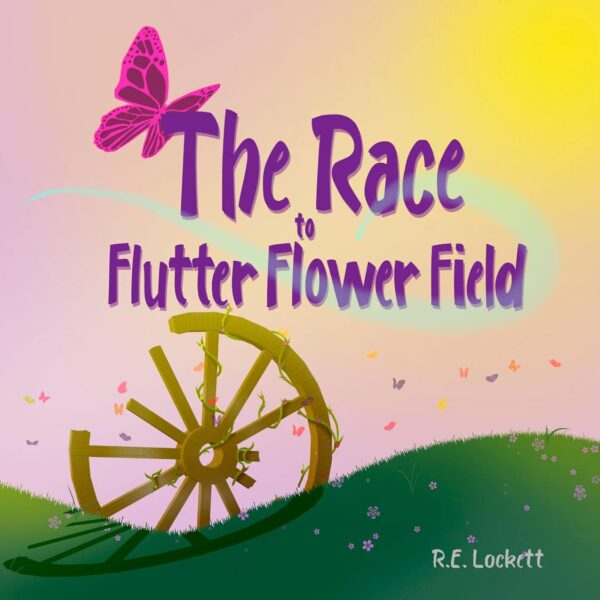Your cart is currently empty!
Coffee Is Your New Key To Creativity

in
Disclaimer: This post may contain affiliate links for books we recommend. If you make a purchase through these links, at no additional cost to you, we may earn a small commission. See our full Terms of Use here.
For centuries writers, artists and creatives of all types have turned to coffee to help them focus on their craft, but what makes coffee so special to the creative process? Experts argue that there are several factors at play here and suggest that coffee and creativity go hand in hand.
Coffee has been used as an aid to get in the zone and overcome writer’s block by jumpstarting the brain into high gear, helping those who would otherwise be slowed down by procrastination or distracted by other daily tasks overcome these hurdles and get back into the right mindset to create quality content.
A Brief History of Coffee
Coffee is native to Ethiopia and was cultivated for consumption around 1000 AD. As its popularity grew coffee cultivation spread throughout Africa, Asia, and eventually Europe. When coffee finally made its way to European ports in the late 1600s merchants often marketed it as a miracle cure for various illnesses, which helped boost sales. Of course, it wasn’t actually good for anything except helping people focus on their work—though that’s not necessarily a bad thing. Over time, consumer tastes evolved, and coffee became more of a pleasurable beverage rather than an aid for productivity—even though that productivity remained throughout history.
One popular telling of the legend of coffee goes as follows: Once upon a time, there was a goatherd in what is now Yemen. He had many goats, and during an unseasonably cold spell they were trapped on a mountain for days with no food or water. The goats were dying when he discovered some strange berries growing wild. They made him feel so invigorated that he shared them with his goats, and they were all able to escape. Some said these berries must have been magical, so he carried them down from the mountain and began sharing them with others in his village.
Those who consumed them experienced similar effects—energy and euphoria—which gave way to both social gatherings and productivity alike. As those who enjoyed these special berries continued passing it around, someone discovered they could be dried out and ground into a powder. It became more readily available once people figured out how to roast it over hot coals, turning it into what we know today as coffee beans.
Although science has yet to completely explain why drinking coffee has such a pronounced effect on creativity it’s generally accepted that caffeine triggers several neurotransmitters in our brains which essentially creates heightened mental activity.
The Art of Loving Coffee
One of Coffee’s first major roles in arts and literature was as a stimulant for artists, like Van Gogh. For centuries, other artists were drawn to coffee for its energy-boosting properties that help them produce more art. Ernest Hemingway, Mark Twain, Jane Austen and Winston Churchill were all coffee drinkers. Their preferred brew was caffeinated and darkly roasted, and each felt that coffee fueled their creativity.
Hemingway even wrote an ode to his favorite haunt:
My local café is called Florian’s and it is on Montague Street in Brooklyn Heights near Washington Square, although there are now Florian’s in Manhattan too. It is a very pleasant café with good Burgundy at five francs a bottle or two for threefrancs fifty centimes.
(Death in the Afternoon)
This quote is only scratching at why coffee sparks creativity in artists of all kinds. Here are some reasons why caffeine may help your mind create unique solutions to problems.
Coffee has been used by writers since at least 1850 but really took off in the early 1900s when cheap access to caffeine became more common. Writers and artists are able to become one with their work better when they are experiencing heightened sensory awareness. Because coffee enhances their senses, it helps them feel every stroke of their brush or taste on their tongue. By opening up all of your senses you have access to an entire range of ideas and thoughts that would have been inaccessible otherwise! The creativity cultivated by coffee can even last after it wears off so be sure to drink lots of water if you want to maintain your creative mind for longer!
Drinking coffee to give you a creative edge isn’t just for artists. Researchers have found that even people with no experience in creative fields can be improved creativity by drinking coffee, specifically when they drink it at specific times. This improved creativity is probably due to caffeine’s effect on your brain, which acts as a psychoactive drug that increases your mental energy levels and makes you more alert. However, caffeine can also have negative effects on your creativity if you don’t use it properly. For example, excessive consumption of caffeinated drinks has been shown to decrease long-term memory recall in rats.
How Coffee Works (the long and the science of it)
A new study led by Howard Nusbaum at the University of Chicago has found that caffeine increases activity in the brain’s default mode network (DMN), which prior research has shown to be an important part of many different kinds of thinking. For example, increased DMN activity has been linked to taking more creative risks and having better memory recall.
While it makes sense that increasing DMN activity would lead to improvements in creativity, it hasn’t been clear exactly how coffee does so – but now we have a little bit more insight into what is happening behind the scenes. The researchers asked 16 people without a history of drinking or drug use to consume either a placebo or a 200 mg caffeine tablet before completing tests designed to measure their levels of creative thinking and their ability to solve visual puzzles.
The results were quite clear: those who took caffeine performed far better on both measures than those who took placebos. Those who consumed caffeine also experienced increased connectivity between two regions of their brains known as the parietal lobe and retro splenial cortex. An interesting tidbit was that no significant difference was seen between those who drank caffeinated coffee versus other sources, though I suspect if you tried another type of stimulant like cocaine, you’d see similar effects since they are both dopaminergic agents with high abuse potential!
Why is Coffee Important to Creativity?
There are several reasons why coffee can be helpful to creatives. Caffeine is a stimulant, which works to boost energy and activity, especially in your prefrontal cortex. It helps you feel alert while relaxing you at the same time. The caffeine in coffee also increases dopamine levels in your brain which helps with focus and attention. Finally, caffeine stimulates beta-adrenergic receptors located throughout your brain which promote arousal, so it’s not just focused energy but overall feeling more alive, alert and aware.
Coffee may make you happier: A positive mood contributes to happiness, and there are plenty of ways to get one—but some experts say coffee is one way where it makes sense to get yours from an outside source.
Coffee enhances concentration: While you might think caffeine distracts you from focusing on one problem, studies show it actually enhances focus—which may improve your memory recall later on. Even better? A Swedish study showed that coffee-drinkers performed better than non-coffee drinkers when given cognitive tests 24 hours after downing their daily cup(s) of joe; caffeinated folk had greater attention spans and increased executive function compared to those who abstained. Want to find out if caffeine works for you? Take twenty minutes or so to do something requiring intense focus–like balancing your checkbook—and see how you feel afterwards versus before drinking coffee.
Coffee helps you be more productive: While you’re taking in that increased concentration, don’t forget about time management. One study found that workers who had caffeine on a regular basis were almost two hours more productive than their non-caffeinated counterparts. This is great news for busy people–but what if your schedule is packed with meetings or appointments? Don’t fret; several studies have found only 50-100 mg of caffeine (two to four cups of coffee) can boost your performance.
Caffeine stimulates blood flow to regions in your brain associated with memory formation. This means that when you drink coffee you are better able to recall facts like names or words with ease which helps people come up with ideas for stories easily.
Caffeine can boost mood making someone feel more confident about their work; people feel they deserve a break during low moments when they might not usually take one because they want to sit down and write something -rather than wanting time away from work- they start feeling like they deserve a break which puts them in a positive state-of-mind where they can actually produce high-quality writing.
Go ahead and treat yourself to your favorite cup of joe and get back to work. Coffee or not, stories don’t write themselves and you’ve got a new key to creativity.
-R.E.

